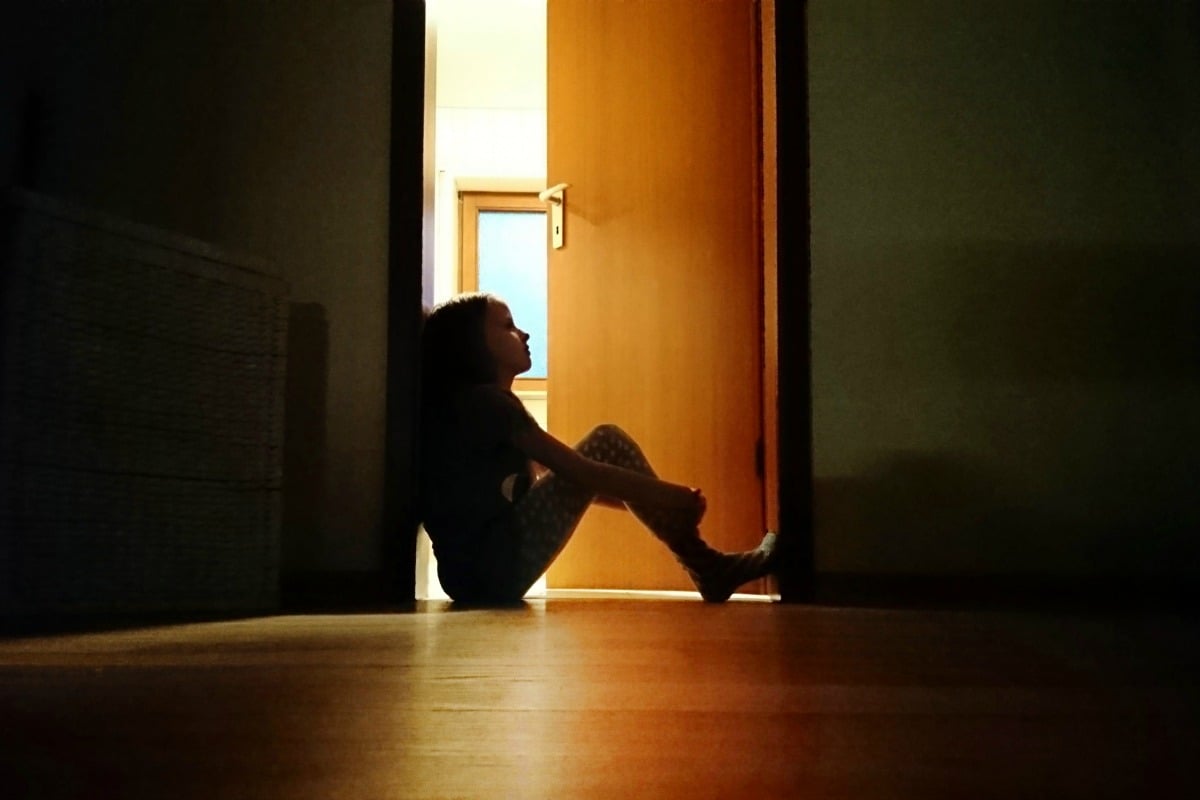
Content warning: This post deals with abuse, and might be triggering for some readers.
My eight-year-old is the kind of kid every adult loves.
She’ll have a conversation with you about anything, share her ruminations on life, and show you the latest contortion poses she learned from YouTube. She’s got a smile that lights up any room and, though many things are tough for her, she works harder than anyone else I’ve ever met.
Relationships with other children, however, don’t come very easily. She’s not very adept at reading social situations and, while she craves closeness with her peers and is desperate to be liked, it has proven very difficult for her to form lasting friendships.
Her empathy and need for peer approval make her an easy target for abuse and bullying. Much like me, when I was a kid.
Watch: The signs of an abuser, told through his victim’s phone. Post continues below.
She’s been used as a pawn between other girls, made to believe she’s responsible for fixing their friendship troubles, fed conflicting stories from both directions and unable to decipher the truth.


Top Comments
Isn’t there another possibility- Lizzie wasn’t lying and that Nina was being abused? Children have been known to mimic sexual behaviour they’ve been subjected to. And in that case wouldn’t you have just sent your daughter to a sleepover at a house where there’s potential child abuse occurring?
Given the behaviour described, I'd agree that it's much more probably that Lizzie is the one being abused and that Nina is not, but she's nonetheless given her daughter some strategies to use if she feels uncomfortable, and they'll almost certainly have a talk about it when she comes home, so clearly she feels the risk si low enough for the sleepover to happen. Given the author's own experiences, I'm sure she'd be very sensitive to those possibilities.
I experienced something similar with my daughter last year, also eight, who had a friend who was manipulative and possessive, and would spread lies and rumours about our daughter while insisting they were best friends. She announced that she was transgender and was becoming a boy, which would be fine if not for numerous other red flags including talking about explicit sex acts with our daughter, who told us what her friend has been saying. She also proposed to our daughter and wanted a marriage ceremony including rings, which made our daughter feel uncomfortable because the child was clear this meant our daughter was committed to her - possibly to the exclusion of all others. We told the school counsellor as well. This child came from a family that had moved every one-two years for the past 10 years. By the end of the year they had moved away again and even when our daughter asked me to message her mum, they never replied. I feel very worried about that child’s future. She was so desperately in need of security.